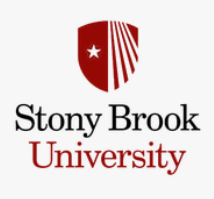Despite concerns over artificial intelligence reducing entry-level tech jobs, many Long Island college students and faculty remain optimistic. Students like Stony Brook’s Hannah Lee believe human collaboration skills will remain vital. Colleges including Stony Brook, Hofstra, and NYIT are expanding AI-focused programs to prepare students for shifting job demands. While AI is automating routine roles, it’s also creating advanced positions across industries. Experts predict significant growth in AI-related careers, even as some companies reduce tech staff. Students are adapting by launching startups, upskilling, and leveraging AI as a tool, preparing for a future where technology changes, but opportunity persists.
Stony Brook Medicine is the first on Long Island — and one of a select number of healthcare systems nationwide — to implement an artificial intelligence (AI) technology, HeartFlow Plaque Analysis™, to enable its physicians to more accurately understand the blockages present in the coronary arteries of patients with suspected heart disease. This advancement, introduced at Stony Brook through a collaboration by the Division of Cardiology and the Department of Radiology, represents a significant milestone in the fight against heart disease, which remains the leading cause of death for adults in the United States.
Graduating into a tough job market, Stony Brook senior Abby-Gaëlle Sylvestre launched an event planning business with her sister amid challenges landing a full-time job. Nationwide, new grads face a hiring slowdown due to economic uncertainty, AI's impact, and increased competition. Job postings are down while applications are up. Some sectors, like consulting and accounting, are hiring more, but tech and finance have seen declines. Career experts urge adaptability, with students using AI tools to prepare for interviews and exploring jobs in alternate industries. For some, like Sylvestre, entrepreneurship offers a proactive response to limited traditional job opportunities.
Esther Takeuchi, a leading scientist with over 150 patents, focuses on advancing safe and efficient energy storage. A recipient of the National Medal of Technology and Innovation, she works at Stony Brook University and Brookhaven National Laboratory. Takeuchi emphasizes the importance of reducing energy waste and highlights the need to develop nonflammable and water-based batteries. With AI’s growing energy demands, she calls for diverse energy sources. She also warns that uncertain U.S. science funding could lead to a brain drain, urging continued investment in research and community involvement in energy projects to ensure safety and drive future innovation.
Stony Brook researchers develop artificial intelligence system to predict aneurysm growth and rupture, offering tailored imaging and follow-up recommendations for patients.
Stony Brook, NY, May 4, 2025 — Current medical guidelines for monitoring abdominal aortic aneurysms (AAA) rely heavily on a single factor: the diameter of the aneurysm. But patients are more than a number—and their care should be too. A new research initiative at Stony Brook University Hospital is rethinking how clinicians track and treat this serious vascular condition by developing an artificial intelligence-driven clinical decision support tool that takes into account the full complexity of each patient’s health data.
Stony Brook researchers develop a novel approach to speech and facial animation, paving the way for humanlike, emotionally intelligent communication with virtual avatars.
Stony Brook, NY — April 21, 2025 — Researchers at Stony Brook and Meta AI have joined hands in developing a new AI model to generate photo-realistic 4D talking avatars from text. The system, called AV-Flow, is capable of producing highly synchronized speech, lip movement, facial expressions, and head motion, marking a significant step forward in natural human-computer interaction.
Stony Brook researchers win seed grant to help artificial intelligence better detect false arguments and subtle persuasion techniques in digital media.
As artificial intelligence and data science continue to transform the landscape of research, healthcare and industry, the Department of Biomedical Informatics is helping students prepare for this rapidly evolving era through its popular programming bootcamp. Launched in 2023, the bootcamp is designed to empower undergraduates with the skills needed to excel in data-driven fields, fostering a generation of scientists and professionals ready to engage with cutting-edge technology.

Stony Brook researchers pioneer a new method to tackle critical medical imaging challenges in radiotherapy, breast cancer screening, and pediatric care.







